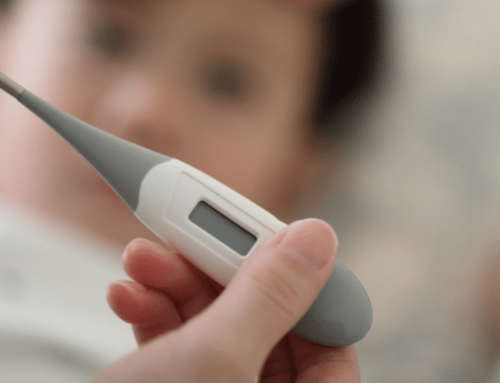
As the school year kicks off, you’re probably thinking about how to prepare your child for a healthy and successful year.
Regular school attendance is important. Missing too many days can affect your child’s learning and well-being.
Here are four practical tips to help your child stay healthy this school year.
1. Practice Healthy Hygiene Habits
Germs and sickness spread like wildfire at school! That’s why good hygiene habits help are essential. Here are some simple ways to stop the spread of germs and viruses:
- Wash hands with soap and water for at least 20 seconds – especially before eating, after coughing or sneezing, and after using the bathroom.
- Send your child to school with hand sanitizer or wipes to use when they don’t have time to wash their hands with soap and water.
- Teach your child to sneeze and cough into their elbow to avoid spreading germs.
- Encourage them to keep their hands away from their eyes, nose, and mouth to help prevent infections.
- Remind your child not to eat or drink after anybody.
- Have them wash their hands as soon as they get home from school.
2. Prioritize Nutrition
Make sure your child has nutritious meals and drinks plenty of water throughout the day. Avoid a sugary breakfast, which can spike blood sugar and cause a crash later at school. A morning meal with protein and fiber will give them fuel for the day and help them perform better at school.
Healthy options include oatmeal, eggs, fruit, peanut butter toast on whole grain bread, low-sugar cereal with milk, turkey sausage or bacon, or low-sugar yogurt.
3. Encourage Physical Activity
Regular physical activity is also essential for your child’s physical and mental health. Children 6 years and older need 30 to 60 minutes of moderate to vigorous physical activity most days. So, encourage them to participate in sports, do an exercise video created for kids, or play outside with friends.
4. Establish a Consistent Bedtime Routine
A good night’s sleep is vital for your child’s health and academic performance. Kids who get enough sleep have healthier immune systems, improved mental health, and better school and memory performance. Create a calming bedtime routine that includes avoiding screen time for at least an hour before bed and reading for 30 minutes before going to sleep.
The amount of sleep children need varies by age:
- Preschoolers (ages 3 to 5) need 10 to 13 hours of sleep, plus naps
- School-age kids (ages 6 to 13) need 9 to 12 hours of sleep
- Teenagers (ages 14 to 17) need 8 to 10 hours of sleep
Your Health is Where the Good Life Starts
Incorporate these four practical tips to help your child stay healthy this school year! If you have any questions about your child’s health, Good Life Family Medicine is here to help. Our experienced medical staff in College Station are trained to diagnose and treat a variety of minor illnesses and injuries, including colds, flu, strep, sprains, and strains. Book an appointment online or call for a same-day appointment.
Learn More: Is It Time For You Or Your Children To Have A Physical Exam?



